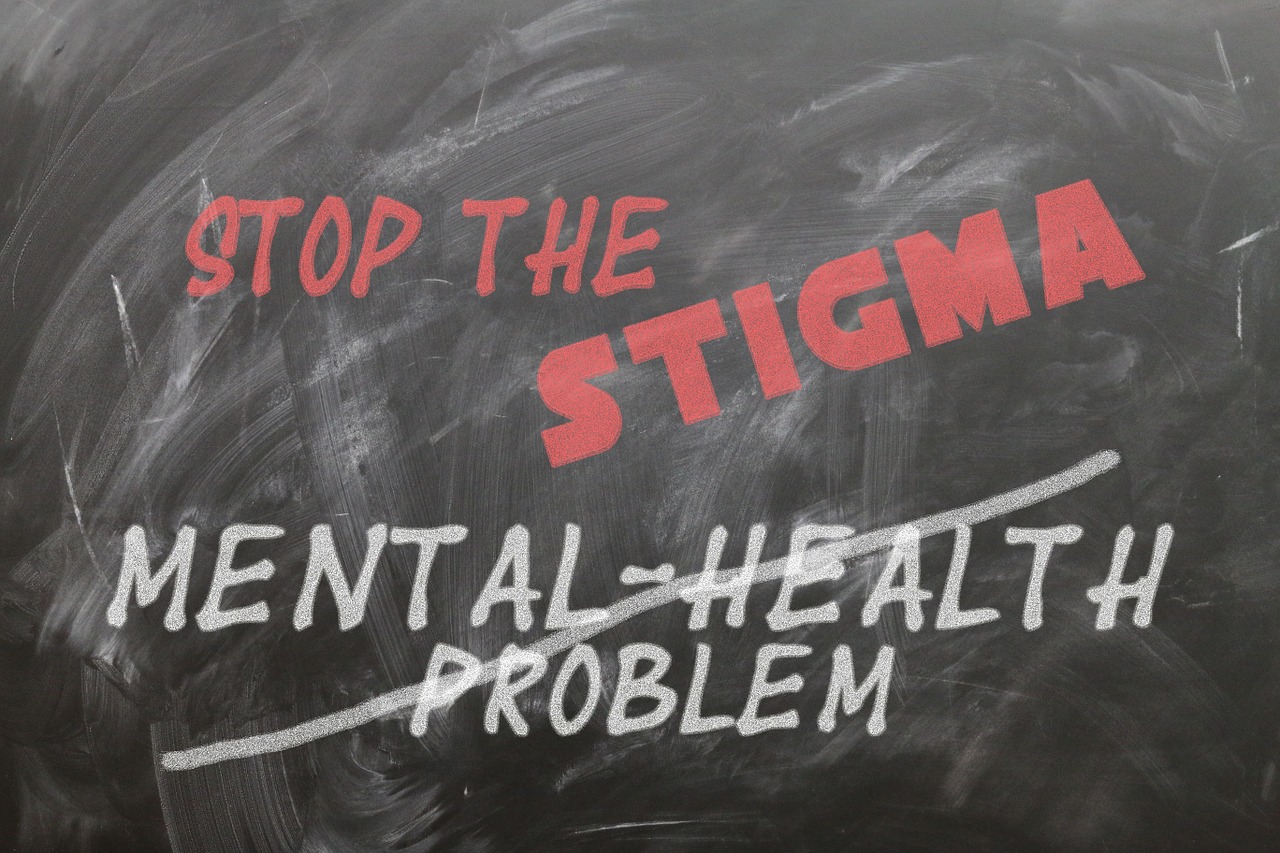In the next ten years, India could account for one-third of the world’s mental illness cases. Yet, only 0.06 percent of GDP is currently allocated to the problem. The Mental Health Care Act 2017 was a step in the right direction, but it needs to be better adapted to India’s unique context.
Editor’s Note: This article is published in partnership with Covid-19 Helpline India.
According to a survey conducted by the Indian Psychiatry Society, the number of reported cases of mental illness in India rose by 20 percent within a week of the lockdown. This highlights the fact that, alongside the obvious economic ramifications, the mental health of the country has also received a severe blow due to COVID-19.
The current mental health crisis is only the tip of the iceberg for a country like India. Estimates say that over one in ten people in India have a mental health issue. One report says that the problem will get worse more rapidly in India than in other countries over the next ten years; India will then account for one-third of the world’s mental illness cases – greater than all developed countries put together. At the same time, India lacks the infrastructure required to deal with this problem – and mental illness is also widely stigmatised.
One of the most important ways to deal with these problems is through proper legislation. The Mental Health Care Act 2017 was a step in the right direction. It was the first attempt to modernise India’s understanding of mental health through a rights-based and patient-centric approach. Under the Act, the definition of ‘mental health professionals’ include psychiatrists, professionals with a postgraduate degree in Ayurveda and Homoeopathy, and also professionals registered with the concerned state authority under Section 55 (clinical psychologists, mental health nurses [MHNs] and psychiatric social workers).
In addition, many positive steps have been initiated in the Act to protect the human rights of mental health patients, such as the inclusion of mental health in insurance plans, the emphasis on informed consent, and punitive actions for violations of the law.
A highlight feature of the Act is Advance Directive (AD), which allows the mental health patient to direct their own course of treatment – including what treatment they are willing to undergo, which treatment options are out of bounds for them, and who will take their medical decisions for them if they lose their decision-making capacity in the future. Though subject to ratification by the relevant medical authorities, this essentially places power in the hands of the patient.
The Act also finally decriminalises suicide attempts by mental health patients. It also charges the government with the duty to rehabilitate such a person to ensure that they don’t attempt suicide again. In terms of methods of treatment, the Act restricts the use of electroconvulsive therapy and psychosurgery.
Overall, the Act aims to create an environment for mental health treatment which respects the dignity of the individual and is accessible to all citizens.
But the question we ask is simple: Is the Mental Health Care Act 2017 enough? Perhaps not.
The Act has come under fire for several reasons, including the lack of proper guidelines and implementation models, a lack of adaptation to the Indian context, and insufficient funding for implementation. Despite the lofty aim of making mental healthcare more accessible to people below the poverty line, only 0.06 percent of the GDP is allocated towards mental healthcare. There is a dire lack of funds. In fact, mental health has not been included in many health insurance plans, despite government directives.
Several mental health professionals also complain about the lack of attention given to prevention of mental health illnesses and the promotion of well-being. Prevention includes evaluating the risk of a mental illness – either at a universal, community or individual level – and implementing tools to prevent an illness.
Mental health promotion goes a step further. It is any action taken to maximise mental health and well-being among people. It operates under the assumption that mental health is more than a mere absence of mental illness; instead, it is a life of happiness and satisfaction.
Neither of these concepts is addressed in the 2017 Act. The Act considers a narrow definition of mental health, focusing more on treatment rather than a holistic ecosystem that includes both prevention and treatment.
Regarding the Advance Directive provision, important details which will impact its implementation – such as severity of the illness, comorbidities, presence of physical illnesses, etc. – have remained unaddressed in the Act.
The policy on AD will remain ineffective without considerable human resources and expertise to deal with the litigation that will arise out of it. This shortage will place a huge burden on healthcare providers and the affected family.
At first glance, AD sounds like a good idea, as it puts power in the hands of the patient. However, there are several complex nuances in the Indian context, which will make this policy difficult to implement without changes. In 2019, a group of academics wrote that the Act seems to assume that family members and healthcare providers are likely to be the primary violators of the rights of the mental health patient. But this ignores the fact that the family will have to bear the brunt in case the patient refuses treatment or if they make the treatment difficult. It makes no provisions to address the interests of the family or healthcare providers.
Even in the approach to treatment, there are several shortcomings. The Act places an emphasis on only the medical and clinical aspects of mental health treatment. In doing so, it ignores the unique social and cultural factors that play a role in the Indian context.
For instance, the Act underplays the role of the family. Familial support is often critical to the recovery process and – more importantly – to the reintegration of the patient into society after recovery. Ignoring these cultural aspects can lead to conflicts with family members and healthcare professionals, which may lead to a further stigmatisation of mental healthcare, particularly given the importance of the family in Indian society.
Further, in situations where the patient does not have the capacity to make decisions, the State has shrugged off its own responsibility and placed the burden of decision-making entirely on the family.
Two more highlights of the Act warrant further evaluation.
The first is the recognition of alternative therapies as legitimate treatment options. In treatment methods such as AYUSH (Ayurveda, Yoga and Naturopathy, Unani, Siddha and Homoeopathy), mental illness is often associated with a physiological imbalance. Interestingly, Indians are also more likely to report physical ailments that in reality represent psychological issues (called somatic problems), or accuse external sources like spirits or demons for mental illness.
While studies have found that alternative treatment methods have had some positive impact on mental health, these results cannot be taken on face value, due to the individualised form of treatment and various other factors. What we do know is that, for a large proportion of the population, alternative treatment is the preferred first option. In India, outreach efforts by the National Mental Health Programme, which have focused almost exclusively on biomedical care, have proven largely unsuccessful. Thus, encouraging collaboration between biomedicine and traditional, complementary and alternative medicine – to reduce the gap in mental healthcare – seems a prudent course of action.
The second highlight is the decriminalisation of suicide. Decriminalising suicide has only served to remove an antiquated law. It has done nothing to remove the stigma surrounding suicide itself. The word ‘committed’, which usually denotes criminality, still remains attached to the act of suicide in popular perception. Government policy must pursue active anti-suicide awareness to reduce the prevalence of suicide, analyse common causes of suicide, and respond accordingly. This requires proper support systems for the welfare of the person who has attempted suicide as well as their community.
The Mental Health Care Act 2017 is a work in progress. It was a big step up from the Mental Health Act 1978, but there are still many gaps and fallacies. Mental health plays a huge role in how a nation functions, and in India, lack of action now can have devastating consequences in the future.
Josika Mahindru is a second-year student of Psychology at Lady Shri Ram College, New Delhi. She is currently a writer at the Covid-19 Helpline, a student mental health initiative. She is a passionate feminist and mental health advocate. With an active interest in research, she works at the intersection between psychology and public policy.


